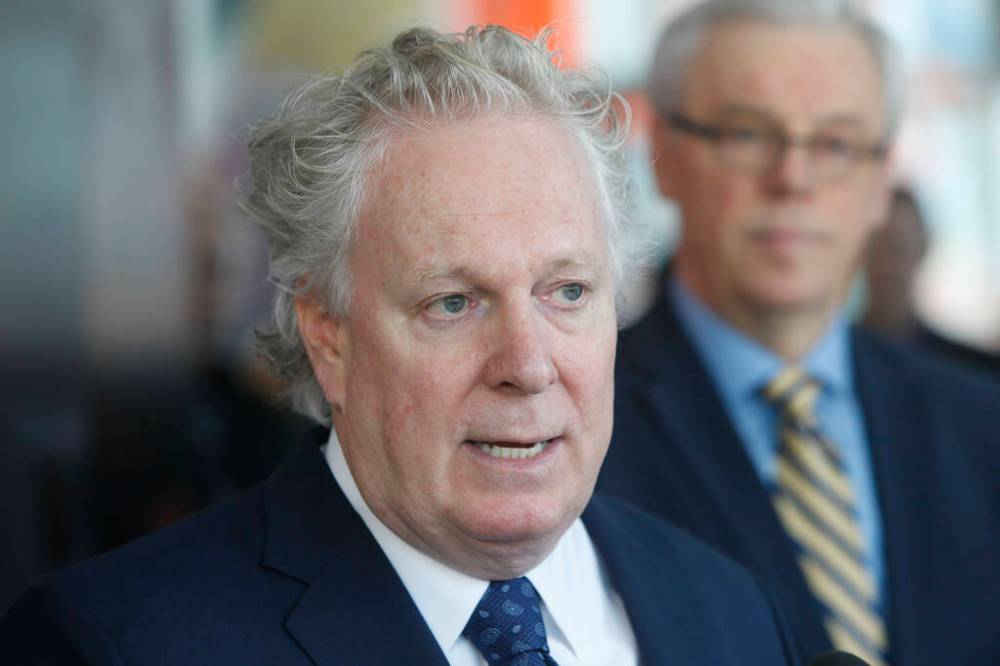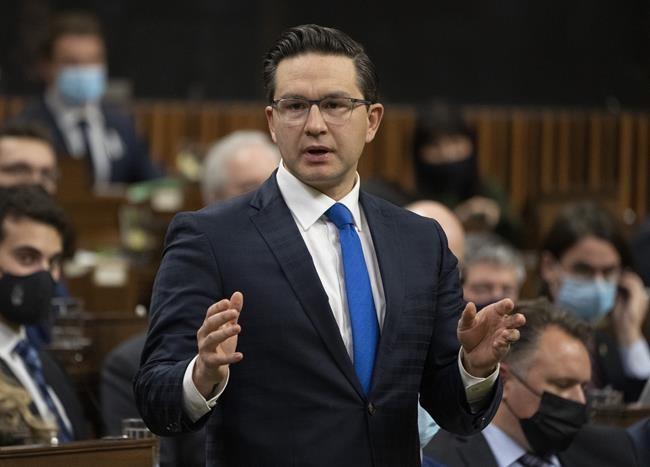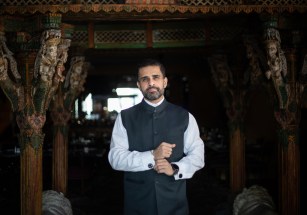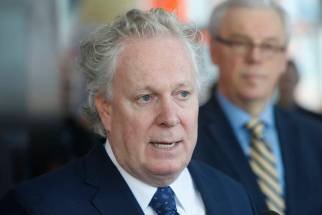Spirited leadership race will aid Conservatives
Read this article for free:
or
Already have an account? Log in here »
To continue reading, please subscribe:
Monthly Digital Subscription
$0 for the first 4 weeks*
- Enjoy unlimited reading on winnipegfreepress.com
- Read the E-Edition, our digital replica newspaper
- Access News Break, our award-winning app
- Play interactive puzzles
*No charge for 4 weeks then price increases to the regular rate of $19.00 plus GST every four weeks. Offer available to new and qualified returning subscribers only. Cancel any time.
Monthly Digital Subscription
$4.75/week*
- Enjoy unlimited reading on winnipegfreepress.com
- Read the E-Edition, our digital replica newspaper
- Access News Break, our award-winning app
- Play interactive puzzles
*Billed as $19 plus GST every four weeks. Cancel any time.
To continue reading, please subscribe:
Add Free Press access to your Brandon Sun subscription for only an additional
$1 for the first 4 weeks*
*Your next subscription payment will increase by $1.00 and you will be charged $16.99 plus GST for four weeks. After four weeks, your payment will increase to $23.99 plus GST every four weeks.
Read unlimited articles for free today:
or
Already have an account? Log in here »
Hey there, time traveller!
This article was published 28/02/2022 (1378 days ago), so information in it may no longer be current.
Former Quebec premier Jean Charest was edging closer and closer this week to jumping into the Conservative Party leadership race to take the place newly vacated by Erin O’Toole. His style and his history stand in sharp contrast to the leading candidate of this moment, Ottawa-area MP Pierre Poilievre.
At age 63, Mr. Charest is a longtime fixture in Canadian politics, having joined the Conservative cabinet of former prime minister Brian Mulroney in 1986. He switched parties to lead the Quebec Liberals, winning Quebec elections in 2003, 2007 and 2008. His terms of office were marked by sharp conflict with labour unions and advocates of Quebec independence.
He drags behind him the heavy load of baggage accumulated during a long political career. As a party-switcher, he inspires doubts about his party loyalty. As a close associate of Mr. Mulroney, he raises doubts about his understanding of integrity and high principles of government.

Mr. Charest offers a sharp contrast to Mr. Poilievre. At age 42, Mr. Poilievre belongs to a newer generation of Canadian Conservatives who rose to prominence in the era of former prime minister Stephen Harper. As a Saskatchewan native and a University of Calgary graduate, he reflects the Prairie Conservative thinking that has dominated the Conservative Party since the Harper years.
Now serving his sixth term in the House of Commons, Mr. Poilievre served as a cabinet minister under Mr. Harper. In opposition in 2015, he has earned a national reputation as a merciless and sharp-tongued critic of the ruling Liberals.
A leadership race between these two men, if it takes shape, will offer Canadian Conservatives a genuine choice between two distinct paths toward power. Mr. Charest bears the scars of the Quebec battles between federalists and the independence movement. Mr. Poilievre has cast himself as an acerbic opponent of Liberal spending programs and an ardent believer in smaller government and lower taxes.

Mr. Charest’s career suggests a willingness to reach across party lines – and even to hop over them when power beckons. Mr. Poilievre has known no other party label than Conservative since the current version of the party rose from the ashes of the former Progressive Conservative and Canadian Alliance parties.
The social conservative wing of the party may still play a large role in a leadership race if the opponents of same-sex marriage and abortion decide one of these men is more sympathetic to their views. Either man, however, is likely to disappoint the social conservatives once the leadership has been settled.
Mr. Charest’s prospects depend on a long leadership race and abundant opportunity to bring new members into the party. Mr. Poilievre would benefit more from a speedy leadership choice dominated by the party as it was re-shaped by Mr. Harper.
Mr. Poilievre is gambling that his ardent support for the anti-vaccine demonstrators whose big highway rigs occupied the streets of Ottawa for three weeks will advance his cause. Mr. Charest counts more on people who have voted Liberal all through the Justin Trudeau years to lift him and his party to power.
One way or the other, the race that is taking shape should at last end the internal bickering that elevated Mr. O’Toole to the leadership and then promptly dumped him after a single election loss. And it should give Canada a Conservative Party that can fulfil the opposition role that makes parliamentary government work.









